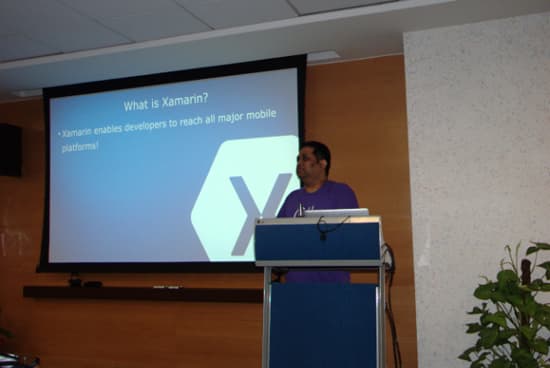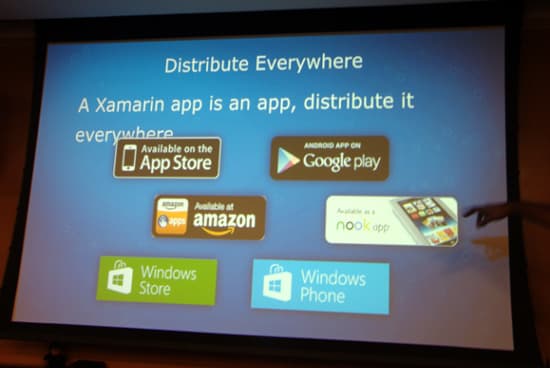Why Choose Xamarin
Xamarin is the first choice for most developers because it allows them to write codes in one language. With Xamarin it is easier to assemble a group of developers who would have the same knowledge about codes and share them with each other. This is a great boon for developers who are into mobile app development. When developers are faced with the challenge of requiring an app that can be used with different platforms or across various devices, they wonder whether they would have to use native apps, Web-apps or even a combination format. These are generally the three main kinds of apps developers use to make mobile apps. Here is a short description of the three:
Native apps
Native apps can be run on the mobile device directly. It is through them that the hardware features of a device are made up. They are noted for their interactive and feature-rich capabilities. However, developers have to be aware of either Java (Android) or Objective-C (iOS) to make apps. If developers are required to make apps for several mobile platforms, they would have to maintain separate code bases.
Web apps
As the name suggests, Web apps can be run on web browsers only. Their workings are confined within the limitations of a web browser. They have limited workings and can be less interactive as well. Though developers should have knowledge of only HTML, CSS and Javascript to write a code for Web app, it still does not discount the disadvantage of having limited usability.
The combination format
In the combination format, developers take the best of both worlds to make a hybrid format. Though it looks theoretically good, developers still have to suffer through performance and scalability issues.
Certain businesses prefer to have just one single platform to run their app and the “build apps native” strategy would work for them. But when mobile apps are to be developed for Windows, iOS and Android devices, things go through a whole different route. The business would then have to hire developers who are good at developing apps for each of them exclusively. This leads to a delay in releasing the apps and this is also where Xamarin makes an entry.
Xamarin has evolved to be the most popular format in cross-platform mobile development. Through the Xamarin approach, developers would have to create UIs that would be indigenous to the respective platform they are on, but the good part is they can create components that can be used on various mobile applications with their knowledge of C++. The components can be reused quite easily. Developers can use this format with Xamarin Studio, Visual Studio or both (they are called IDEs or Integrated Development Environment)and deliver apps that would be simple to use, enjoy a better and more efficient development process and integrated with support process.
Advantages of using Xamarin
Xamarin has the capability to mirror the native APIs because it provides an API of its own. Because of this advantage it, is easy for iOS and Android developers to seek help or read tutorials regarding the codes written in native languages and convert them same to C++. The API names however, remain the same.
A single team of developers can make the web and mobile apps
There is no need to hire more developers to develop the latest mobile and web apps in the market because developers with excellent C++ knowledge can easily handle the task. Thus it saves on manpower and other costs.
Just a single language
Xamarin allows developers to write the code in a single language and it solves a whole lot of problems created through multiple programming languages, code sharing, lack of reuse and using multiple developers.
Allows native UI access across the three main platforms
While preserving the native performances, Xamarin technology enables access of native UI across different platforms. Developers can enjoy application logic, shared codebase and full API coverage in the process. Xamarin allows for device specific experience for the developer while using native APIs. There is also the facility for checking for bugs, which is usually one of the major problems during integration between various devices.
Access to thousands of libraries
As Xamarin applications use .NET BCL which makes it accessible to a horde of streamlined features like XML, Database, String, Serialization, IO and Networking support. It is also possible to compile the current C++ code to be used in accordance with the thousands of libraries. These libraries can be used for coding apps that works with iPhones, Windows phone and Android phones.
No more slogging to learn the coding
Mobile app developers do not have to learn complicated coding anymore. It is extremely easy for people proficient with C#/.NET programming. Even developers, who are not proficient with the language, need to study only C++. Hence, Xamarin is noted for its steep learning curve because only two weeks of time would be enough to learn how to use Xamarin.
Lesser app development cycle
As mentioned above, code sharing is a significant advantage of Xamarin. Thus, it is possible to make the best of native controls through conditional compilation and file-linking, making it possible for developers to reuse 80% of the codes. This reduces the expenses mobile app companies have to incur while developing apps.
Advanced language-level support
The steps needed for asynchronous programming with C++ is quite simple. The Xamarin application can be called a futuristic app because it is extremely easy for developers to add responsiveness to their apps.
Conclusion
Xamarin applications are thus becoming increasingly famous as it is easy to use, cost-effective, require knowledge of only C++ and have the ability to allow reuse codes.
Interesting Links:
Benefits of Xamarin Cross Platform Mobile Development
Xamarin cross platfrom development
Pictures: Flickr.com/ Saifi Khan

The author: Reema Oamkumar is engaged as a thought leader at Software-Developer-India.com which is a part of the YUHIRO Group. YUHIRO is a German-Indian enterprise which provides programmers to IT companies, agencies and IT departments.


Leave a Reply